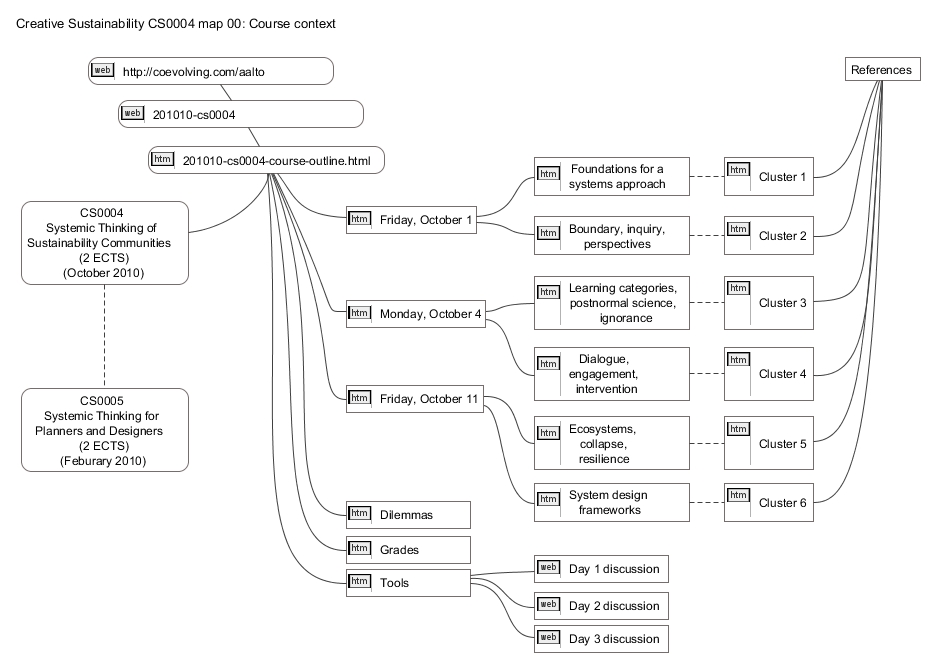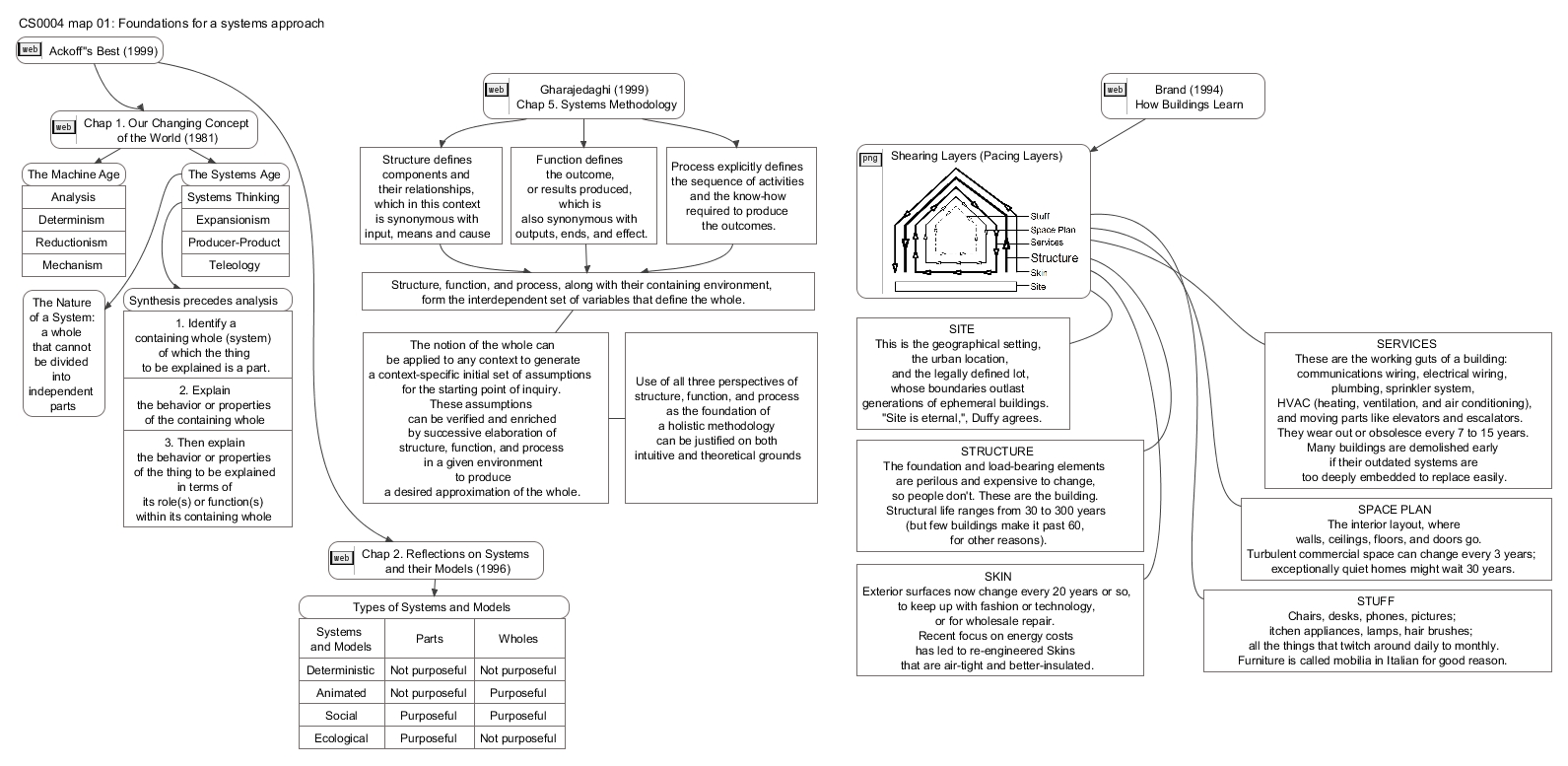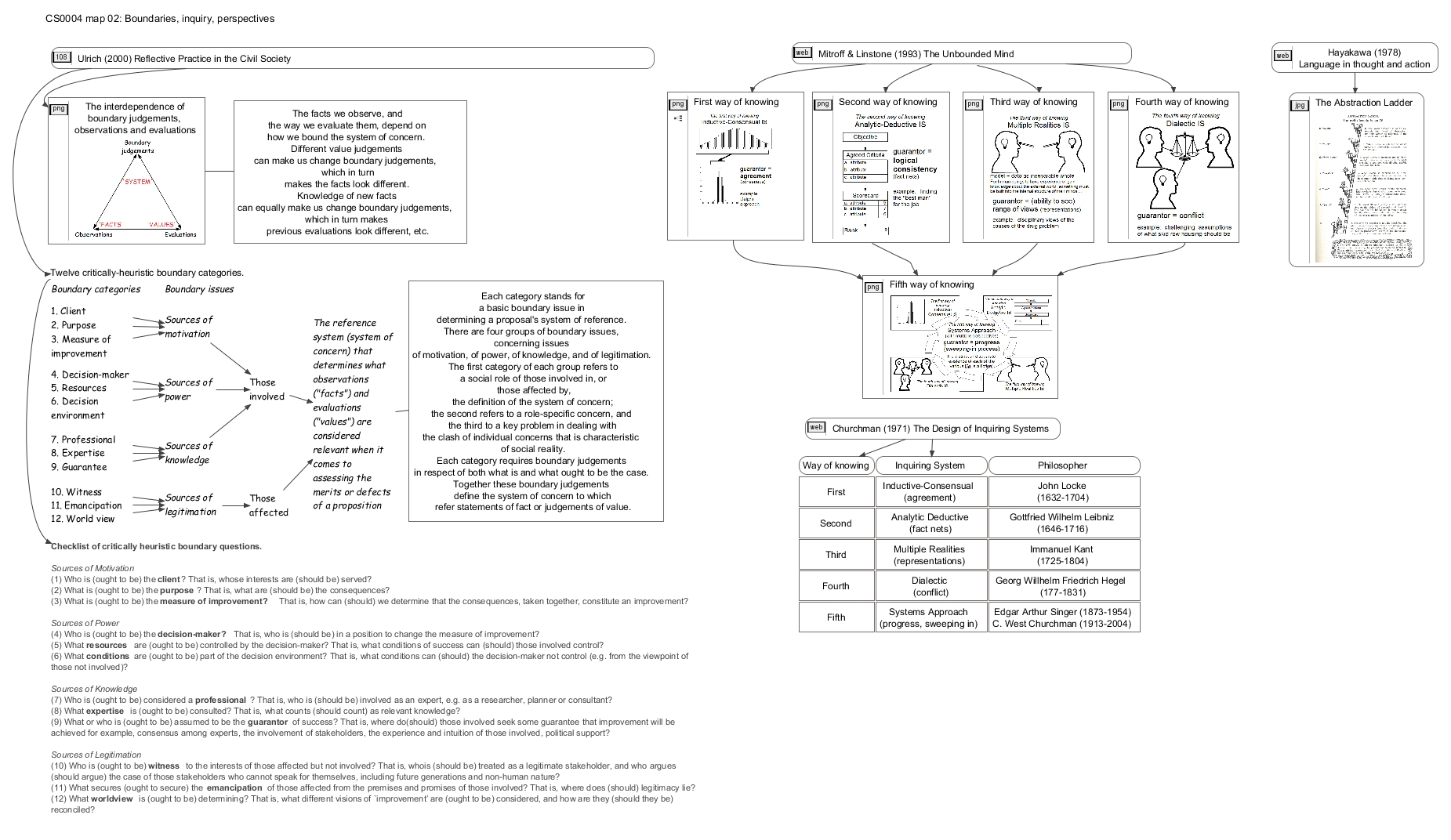[Frank] Oppenheimer had a provocative approach to learning, which can be summarized by saying that …
the best way to learn is to teach, the best way to teach is to keep learning, and that what counts in the end is having had a shared, reflected experience. (Delacote, 1998)
At the beginning of October, I had blogged about starting the first of two courses in the master’s program in Creative Sustainability at Aalto University. I’ve been maintaining the content online as open courseware, and have now added an index page. The context map and the course outline have evolved, and should now have mostly stabilized with the conclusion of the lectures.
The course isn’t quite done yet, as the students have to write research papers. I took responsibility for the course content, and Aija Staffans and Katri-Liisa Pulkkinen have taken responsibility for guiding the students through the university practicalities and evaluating their learning.
While I have previously instructed at the master’s and doctoral level before, I don’t claim to be the greatest teacher. I see myself as a researcher who can share content with students, whom may have more or less interest in the topics. Teaching this first class on Systemic Thinking of Sustainable Communities (with a follow on of Systemic Thinking for Planners and Designers scheduled five months later) has led me to some of my own learning, with overall conclusions that include:
- 01. Sustainability is a topical theme that can be complemented by the systems sciences
- 02.
[Frank] Oppenheimer had a provocative approach to learning, which can be summarized by saying that …
the best way to learn is to teach, the best way to teach is to keep learning, and that what counts in the end is having had a shared, reflected experience. (Delacote, 1998)
At the beginning of October, I had blogged about starting the first of two courses in the master’s program in Creative Sustainability at Aalto University. I’ve been maintaining the content online as open courseware, and have now added an index page. The context map and the course outline have evolved, and should now have mostly stabilized with the conclusion of the lectures.
The course isn’t quite done yet, as the students have to write research papers. I took responsibility for the course content, and Aija Staffans and Katri-Liisa Pulkkinen have taken responsibility for guiding the students through the university practicalities and evaluating their learning.
While I have previously instructed at the master’s and doctoral level before, I don’t claim to be the greatest teacher. I see myself as a researcher who can share content with students, whom may have more or less interest in the topics. Teaching this first class on Systemic Thinking of Sustainable Communities (with a follow on of Systemic Thinking for Planners and Designers scheduled five months later) has led me to some of my own learning, with overall conclusions that include:
- 01. Sustainability is a topical theme that can be complemented by the systems sciences
- 02.





